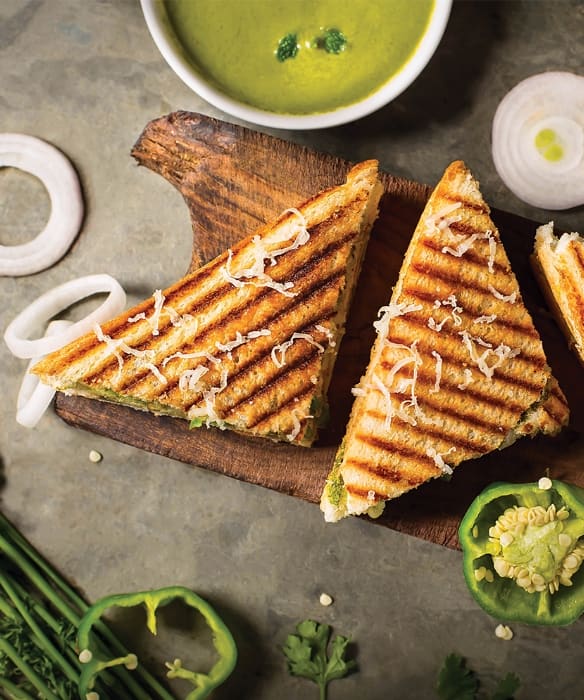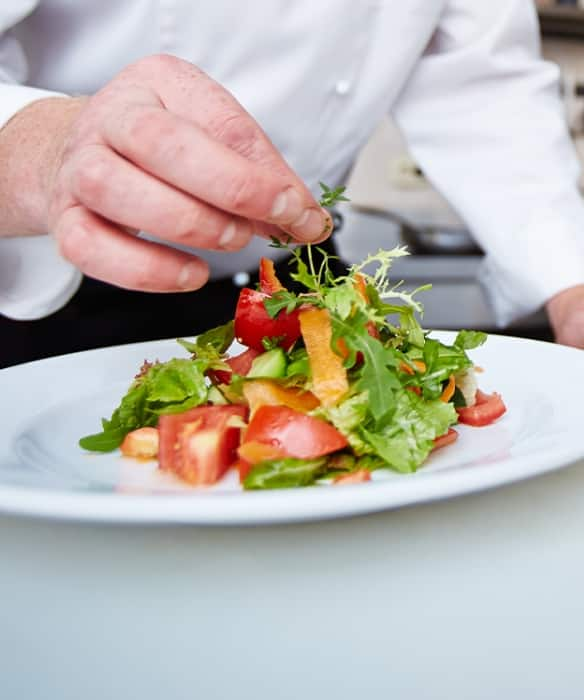Stay logged in to proceed with bookings, orders and offers.
On changing the terminal, you will loose items in your cart. Are you sure you want to change your terminal?
Deep dive into the magic of Turkish coffee, a taste transcending time and tradition.
As a child, coffee was like a forbidden fruit to me. It was stocked in the kitchen, only during winter, in a curvy glass jar of Nescafe. Upon repeated desperate requests, I would be given just a pinch of coffee powder mixed with a glass of milk or Bournvita. Things changed when I got into college, where several cups of cheap and stale cappuccinos from the canteen became my daily staple. From getting over heartbreaks to keeping me awake during my dissertation, coffee became my best friend. However, my relationship with caffeine changed when I started working. Now that I was earning meant that I could buy good quality coffee and consume it in a sensible amount, as opposed to the consolatory pinch that I received during my childhood, or for that matter, all the binging I did during college. This is when I came across Turkish coffee. I went for brunch with a friend at a cosy cafe in Kolkata. On a whim, I decided to order Turkish coffee to go with my muffins. My tastebuds still thank me for that decision.
Turkish coffee is believed to have its roots in trade with medieval Yemen, the second-largest Arab sovereign state in the Arabian Peninsula. It arrived in Turkey in the 15th century, during the Ottoman Empire, who were quick to embrace the beverage but with their unique twist in preparation. The Governor of Yemen, Ozdemir Pasha, may have been the one to officially introduce the coffee beans to Sultan Suleiman the Magnificent. It initially faced some pushback as the strong punch of the coffee was considered a drug and hence 'haram' in Islam. However, soon enough, the popularity of the beverage outweighed the ethical dilemma. Eventually, Turkish coffee made its way to Europe and America as well. The first coffee house in Great Britain was established by an Ottoman Jew in the mid-17th century.
Now you may wonder, what is so special about this drink? All coffees come from three to four types of beans and there is not much difference in their taste. So, here's the secret—the magic of Turkish coffee comes from the unusual method of making the drink. Typically, Turkish coffee is made from Arabica coffee beans. It has a rich aroma and strong flavour, and is meant to be savoured instead of gulping it down. In the ancient brewing method, the coffee beans are first roasted over an open fire and then ground using a mortar and pestle. This fine coffee powder, along with water and sugar, is placed in a special pot called a 'cezve'. The cezve is then heated over hot sand or charcoal until the coffee reaches a frothy consistency with a bittersweet caramel flavour. It is traditionally served in small cups called 'fincan', accompanied by a glass of water and a sweet treat such as Turkish Delight.
While the ancient brewing method still holds a special place in Turkish culture, modern techniques have emerged to cater to changing preferences and advancements in technology. Today, most Turkish coffee is prepared using electric coffee grinders to achieve a consistent, fine grind. Electric cezve-like devices have also been introduced, providing a more controlled and efficient heating process. Another notable change is the growing popularity of pre-packaged Turkish coffee, which comes in convenient single-serve portions. These pre-packaged coffees are often flavoured with cardamom, mastic, salep and other spices, adding a unique twist to the traditional beverage. Despite these modern adaptations, the essence of Turkish coffee remains unchanged. It continues to be enjoyed for its strong flavour, its social significance in gatherings and ceremonies, and its reflection of Turkish hospitality.
Coffee for the Turkish is not merely a drink, it is an intrinsic part of their cultural rituals as well. For instance, fortune-telling from the leftover coffee grounds is still a common practice in Turkey. Moreover, when the groom's family visits the bride's parents to ask for her hand in marriage, it is a common custom for the bride-to-be to serve coffee to her future in-laws. Sometimes, she mixes salt in the groom's cup instead of sugar as a test of character. If he drinks it without calling her out or any visible signs of displeasure, he is considered a patient and understanding man and passes the test with flying colours. However, if he throws a tantrum, it becomes a testament to his lack of empathy and sensibility.
From its ancient roots to modern adaptations, Turkish coffee continues to be an emblem of Turkey's traditions, culture, and hospitality. It is fascinating to imagine that many centuries ago, what was used in Turkish households to welcome their guests, is now served at fancy cafes all over the world. The passage of time is truly a magnificent thing, perhaps matched only by the flavour of coffee!





The Adani One expressly disclaims all liability, direct and indirect, in respect to actions taken or not taken based on any or all the contents of this Blog. The Blog is an opinion of the contributor based on the collation of data from various sources and is provided only for information purpose. Adani One does not canvass, advertise, solicit, invite or induct for any product, merchandise, information, brand or any other materials mentioned in the Blog, nor does it obtain any monetary benefit from the same. Reader is advised to read and apply his/her intellect and discretion in this regard. Any Intellectual Property mentioned in this blog belongs to the rightful owner. We do not intent to claim any interest over the same.